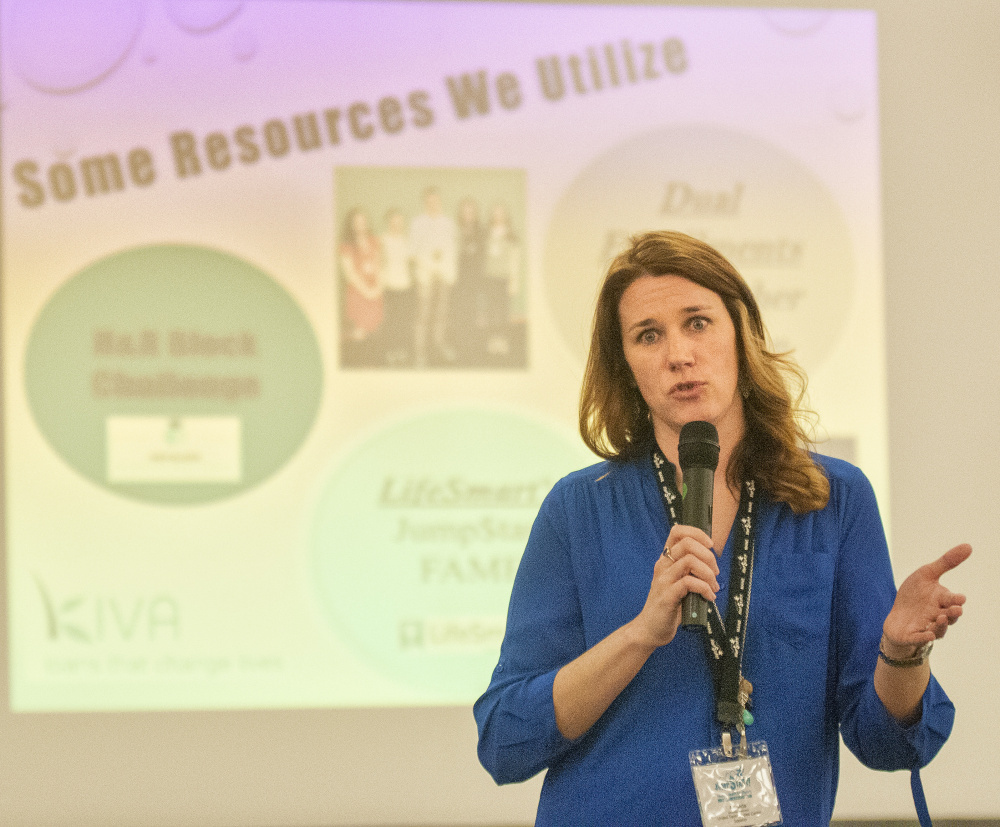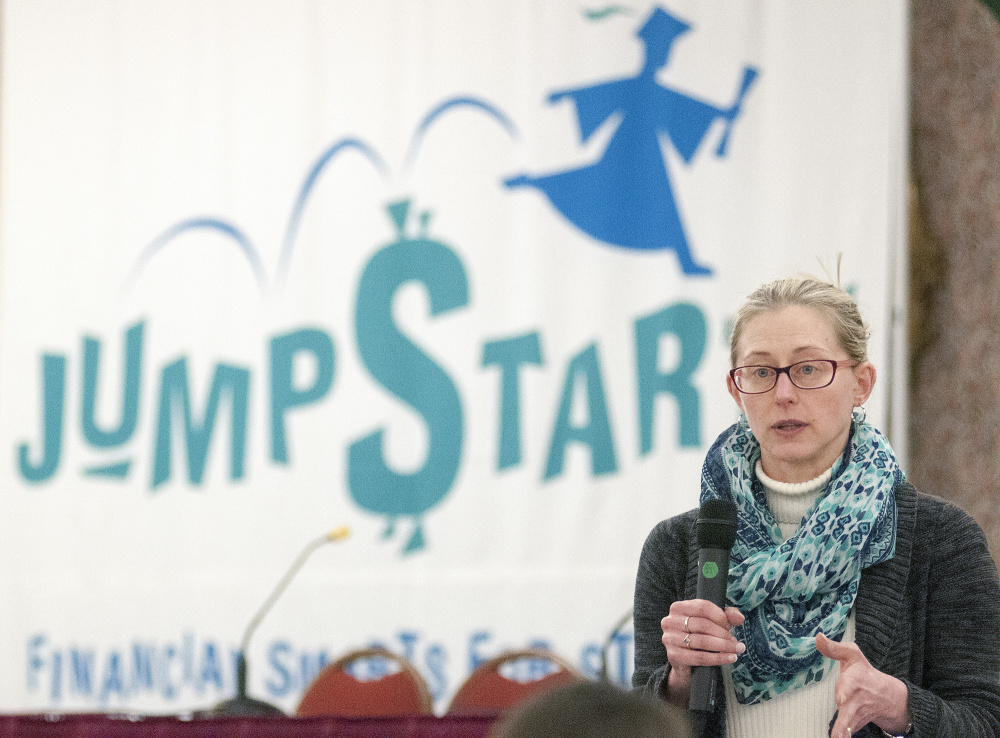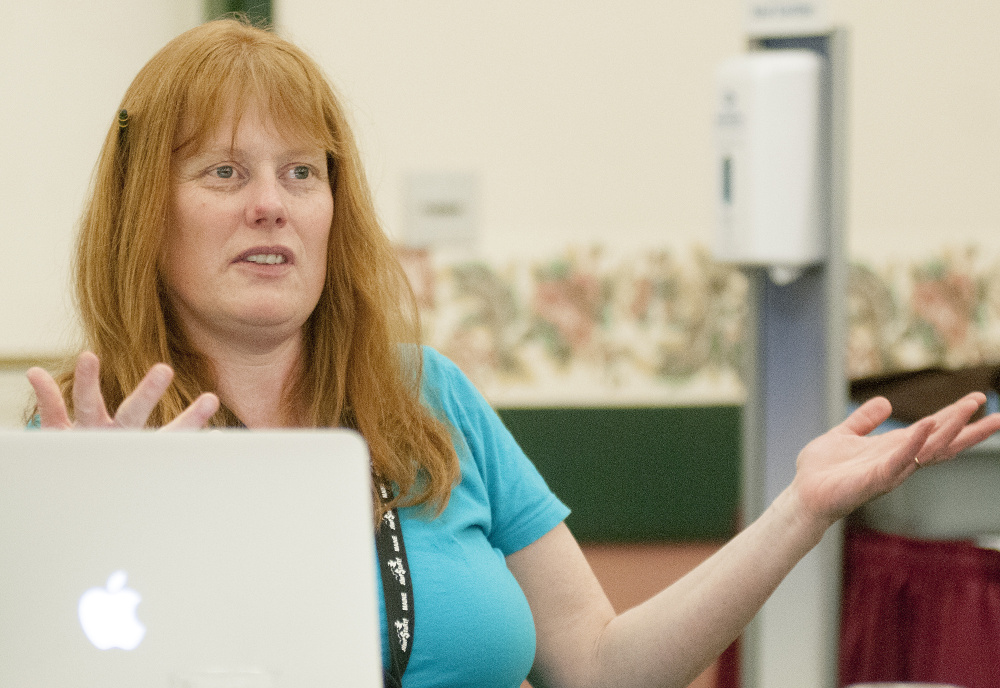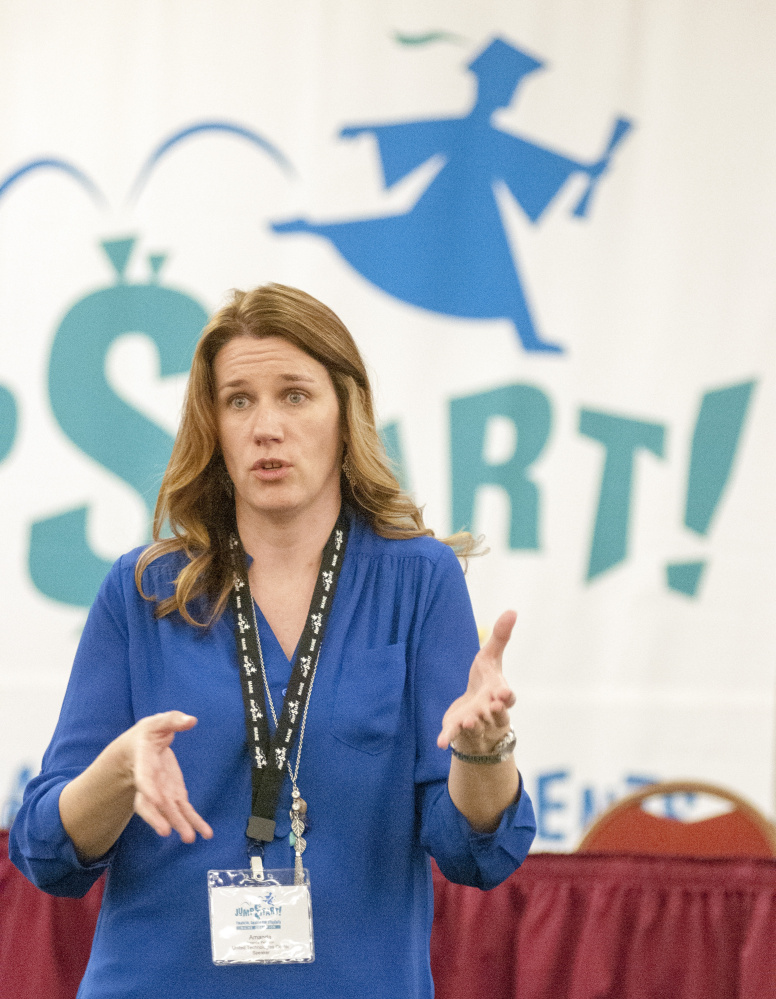AUGUSTA — Ami Amero can see when the reality of what she’s teaching at Forest Hills Consolidated School in Jackman starts to sink in.
Her personal finance course gives seniors a look at what life will be like when they leave the nest and assume the responsibilities of money management and running their own lives.
“At first they say they all want to stay with their parents forever,” Amero said Thursday, between sessions at the state’s seventh annual Fostering Financial Education in Maine conference at the Augusta Civic Center. “Maybe they will. I don’t know.”
But in her class in School Administrative District 12, she simulates the realities of planning a financial life. The students start to learn about the kinds of jobs they might have, and they are issued a paycheck and have a series of bills they have to pay. Amero lets them get comfortable with that for a while and when they start to carp a bit, she’ll tell them she didn’t give them children to plan for.
That’s when the light starts to dawn, she said. They can see, for instance, what a police officer makes; and if one of their parents is a police officer, they start to recognize the limits of the family budget.
“They get really quiet for a bit,” she said, and they realize how something they might have asked their parents for would affect the family spending plan. “I tell them, maybe when their parents ask them to do the dishes that night, they won’t crab so much.”
Amero was one of three educators invited to take part in a teacher panel on best practices in financial education at the conference put on by Maine’s Jump$tart Coalition, which promotes financial smarts for state residents, with a focus on students. She was joined by Amanda Peterson, a business instructor in the United Technologies Center in Bangor; and Bo Zabierek, an applied academics instructor at the Region Two School of Applied Technology in Houlton.
The one-day conference, which drew teachers from across the state, also included sessions on techniques and programs to engage students with different aspects of personal finance, including investing, practical advice for students on the wise use of credit, the truth about student loan debt, and overall financial literacy.
Maine is among the 20 states to receive a B in teaching personal finance in high schools, according to Champlain College’s Center for Financial Literacy. The center surveyed the 50 states and produced the 2015 National Report Card on State Efforts to Improve Financial Literacy in High Schools. Only five states received A’s, and 26 states received grades of C or below.
In 2013, Gov. Paul LePage signed into law a measure put forth by young lawmakers to require the state’s schools to teach students how to manage money and debt.
Amero, a history teacher, built her program from the ground up starting about 10 years ago.
“I went to my principal to ask if it was OK that I was doing this,” she said. The answer was yes, and it was, as it turns out, a timely decision.
The national economic slide that started in 2008 put financial matters at the forefront of American life in ways Amero could not have predicted.
“Now it’s trending, and it’s a buzzword,” said Amero, who was a Maine Teacher of the Year nominee in 2001, 2013, 2014 and 2016.
The class has been around long enough that she’s been getting younger siblings of the students taught years ago, and she’s delighted to see their enthusiasm and get feedback from students who have moved on, including one young man who received a bottle of Tide detergent from his parents.
“He really wanted to go to a concert, but he was forced to decide between that or (paying to do) laundry,” she said. Her former student understood what the detergent represented and he was delighted with it, she said, because that meant he could have clean clothes and afford to go to the concert.
Amero is now working with the Maine Department of Education, the Finance Authority of Maine and others to draft legislation that would require financial education to not just be taught, but to be a graduation requirement in all Maine high schools.
Jessica Lowell — 621-5632
Twitter: @JLowellKJ
Send questions/comments to the editors.








Success. Please wait for the page to reload. If the page does not reload within 5 seconds, please refresh the page.
Enter your email and password to access comments.
Hi, to comment on stories you must . This profile is in addition to your subscription and website login.
Already have a commenting profile? .
Invalid username/password.
Please check your email to confirm and complete your registration.
Only subscribers are eligible to post comments. Please subscribe or login first for digital access. Here’s why.
Use the form below to reset your password. When you've submitted your account email, we will send an email with a reset code.